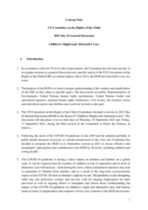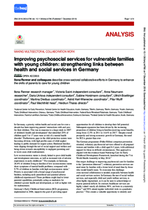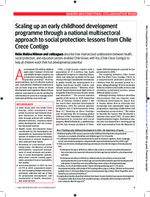Concept Note: UN Committee on the Rights of the Child 2021 Day of General Discussion (DGD) on Children’s Rights and Alternative Care (English)
This concept note outlines the context, background, relevance, purpose, scope, and objectives of the 2021 Day of General Discussion on the theme of “Children’s Rights and Alternative care”.



